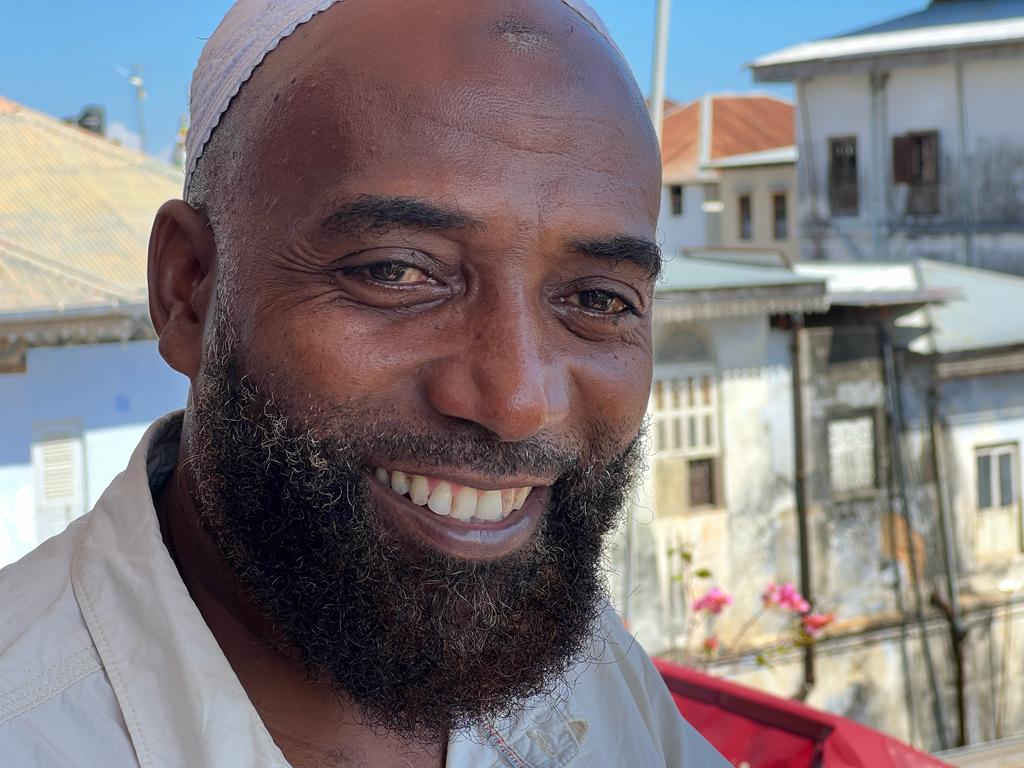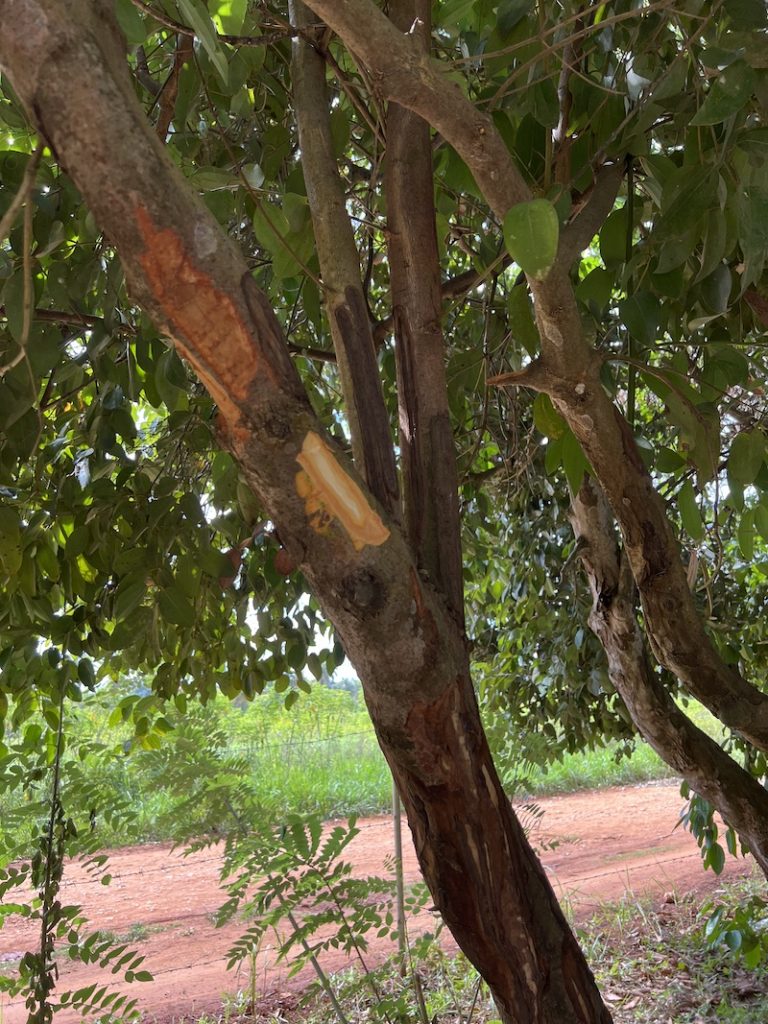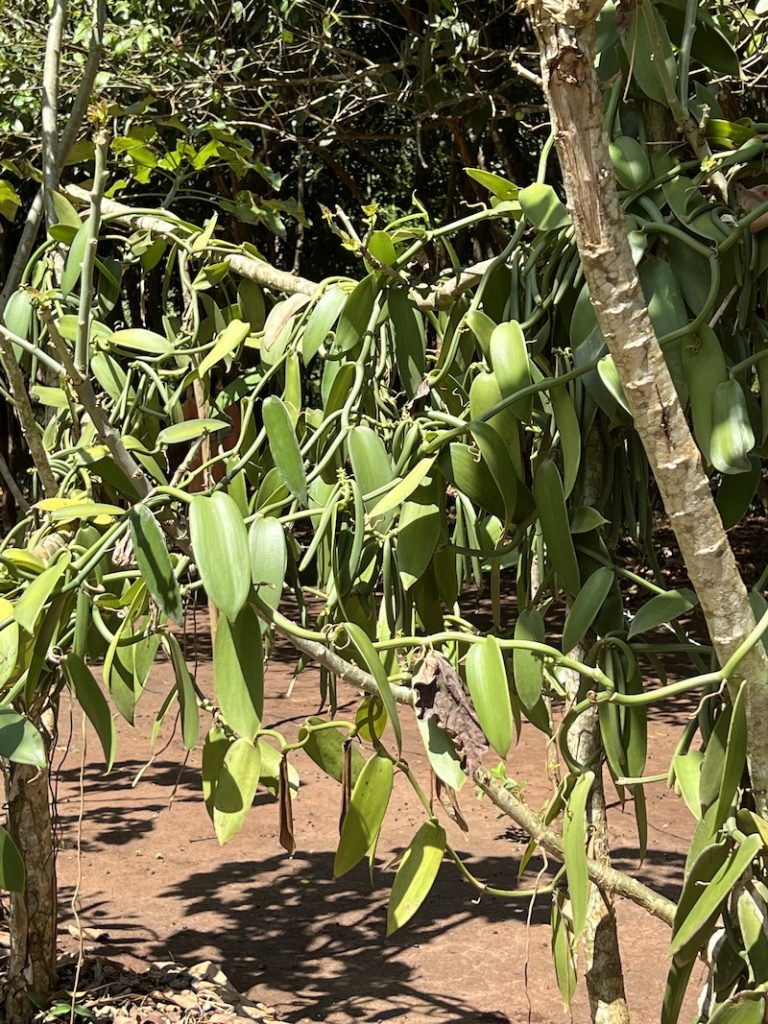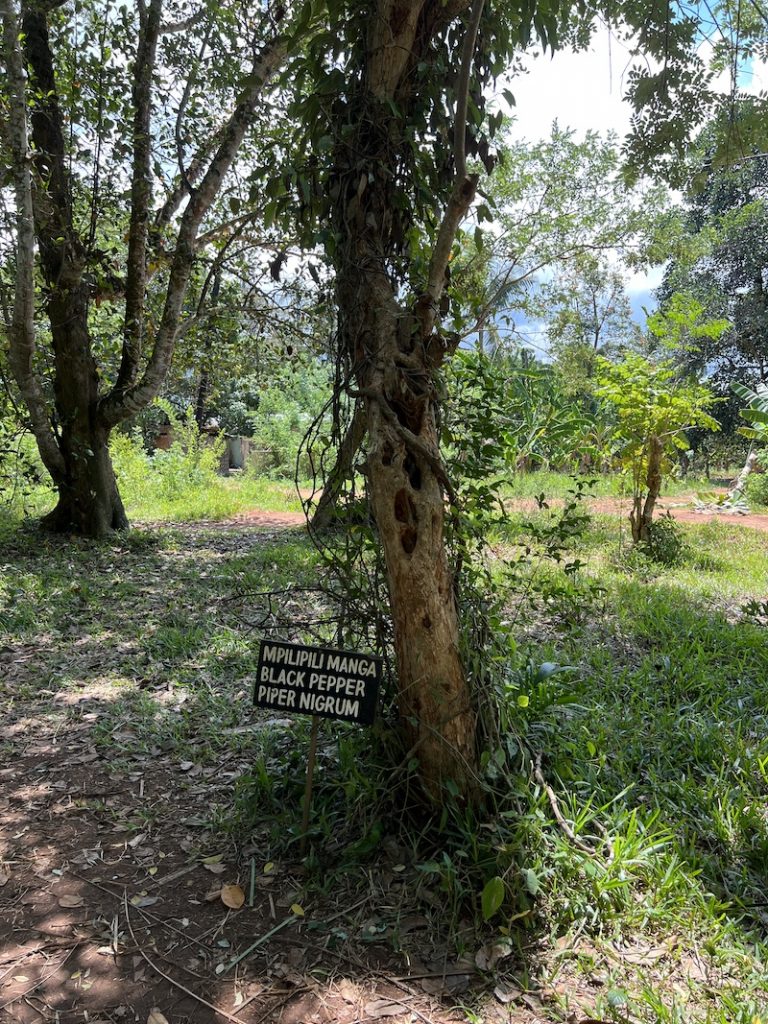
The Nomad is a series of stories, fascinations, encounters, observations, experiences, joy of the moments by me, Ulrike Reinhard – all around my travels. Stay tuned!
Ulrike Reinhard is The Nomad 🙂
I met Dr. Saidi Matahabashy in Stone Town, Zanzibar, in March 2023. He is a herbal “doctor” and was recommended to me by Julie Gunn one of three who organised the conference “Healthcare: the Future” in Kiwengwa, East Zanzibar (and online) in fall 2022. My first encounter with Dr. Saidi was at a government owned spice farm where he guided Julie and me through the gardens and explained the medical capacities of all the spices. This was quite amazing – not only to learn about all the medical benefits but also to see how cinnamon, vanilla, pepper or nutmeg is growing and how turmeric and ginger roots look above the soil. That was a first for me. Two days later I met him again and we did the following interview.

Dr. Saidi Matahabashy
Where and from whom did you learn your practices?
I inherited this business from my grandfather. And my grandfather got it from his father, who came from Oman to Zanzibar in 1885, I think. He was a doctor on a boat and first arrived on the island of Unguja (= Zanzibar Island). From there he moved to Pemba Island, Zanzibar, where he settled and became a herbalist. My knowledge is old knowledge – passed on over generations.
I hardly remember my grandfather, I was too young when he died. But it was the first time I got in contact with herbal medicines. He was working in and around his compound, I watched his personal effort to grow plants and I read the books he left. They were all written in Arabic.
What do you mean exactly when you say herbal medicine?
For me it means treating people with plants, leaves, flowers, root, seeds and spices. Sometimes I mix them, sometimes I separate them from each other. I boil, cook, drink, wash and fumigate them – that’s what I call herbal medicine.
Why is Zanzibar such a special place for herbal medicine?
Zanzibar is a cosmopolitan island with a lot of cultures living peacefully together. Here there are no problems between the people – you see them all together in the open markets and streets. It is a cultural mix of Arabs, Africans, Indians, Somalia, people from Moroni (Comoros Islands), Ethiopia, Egypt, Sudan, Yemen, China, Iran and from Iraq. And all these people brought their very own ways of dealing with the herbs and spices. You easily find 40-50 herbalists here, they all practice their very own way and cure diseases in 40-50 different ways. It is the variety and the deep old knowledge which makes Zanzibar a special place when it comes to herbs, plants and spices.
Yet, you still find many pharmacies here in Stone Town ….
Yes, you do find pharmacies, of course. Yet most of the people who are living in the countryside, 10-15 kilometers from town, prefer traditional herbalist as their healers.
What are the advantages of herbs and spices in comparison to pharmaceuticals?
If you go into a pharmacy you need money. It is as simple as this. And in these villages, even in town there is not that much money. Herbal medicine is “duty free” and easily available and accessible. Most of the herbalist don’t depend on asking their poorer clients for money. You treat your friends and family for free – you also don’t have that many costs, everything grows in the garden. I just need to go and find the trees, bushes, roots and plants.
Sometimes also people “exchange” goods for their treatment – so that the herbalist gets rice, banana, cassava jackfruit chicken, things like that. This way the treatments become affordable to the locals who don’t have cash.
Any other advantages besides cash ….
The herbs have a very positive on your body in many ways. It’s all natural – now chemistry involved. Herbs have not only healing effects, you would usually start an herb treatment with detoxing your body. For 7, 14, 21 days … depending on how you feel. And then from there you go!
What are the most important spices in your treatments?
The most important spice is Tumeric – preferably fresh or in powder. If you have powder it has to be orange in color – not yellow. If it is yellow then it has been harvested too early or it is adulterated with wheat flour. Tumeric is antibiotic and serves everyone from zero years old to old age. Even animals!
Number two is cinnamon. Cinnamon is super because we use the leaves of the cinnamon tree to cook tea, the bark we use for cooking, we use its oil for massages and we use the roots of the cinnamon tree to find menthol (>>> Vicks vaporub) – which helps people with sinuses and migraine. Besides the cooking, cinnamon treats low cholesterol, reduces high blood pressure, triglycerides and diabetics.
And then there is Galanga – it includes ginger and Turmeric, it is a mix of both. A very fresh antibiotic. We used it to kill the Corono Virus – drink a smoothie every two hours, and COVID is gone. Galanga helps you to focus and think better.
Pepper is some kind of turbo charger for all the other spices – when you add pepper to any kind of herbal treatment it will help to move the blood around in your body in order to distribute the “medicine”. Pepper is needed.
And as the last one, I name the black seeds – in Arabic we call it habit soda. It has its blessings from the bible and the prophet talks about is. So black seeds are very important.



Cinnamon, vanilla and pepper
How do you diagnose a patient?
It is based on my experience, the many years of practicing and the knowledge my ancestors provided me. It is not at all comparable what they do in hospitals.
It is almost like a journey I start with my clients. It’s a slowly exploration and then explanation I start with them. So I understand them and they understand me. This is very important.
And then the herbal medicine I mix, serves the disease AND the entire body. One mix covers all your needs. So you won’t have any kind of side effects because it’s natural. Let’s say I prepare a cholesterol medication. It includes cinnamon, there is little bit of cumin, a little bit of lemongrass, a little bit of thyme, mint, peppermint – and pepper. So all these herbs not only heal cholesterol and blood sugar, they also prevent other diseases.
In a hospital they would prescribe you a single medication for each single aspect of your disease. If you have a malaria, you will have headache, muscular pain, joint pain, loss of appetite, dizziness, vomiting, abdominal discomfort and diarrhea. You have eight problems and in hospital they would provide one medicine for each problem. That’s not really good for your body. In herbal medicine we do ONE mix which serves every aspect of the disease and it is very easy adjustable to your day-to-day condition.
What is the convincing argument to switch from pharmaceuticals to herbs and spices
in terms of treatment?
Pharmaceutical is big business, big money. It is their business to make you use their products regularly. When you use herbs on a daily basis, you are not getting sick. If you drink every morning a tea masala, a modality that has got little ginger, gloves, cardamon, cinnamon, thyme, little neat lemongrass – if you drink this in the morning means you prevent yourself from several diseases. In the afternoon we cook curries with spices like Tumeric, ginger and black pepper and at night you have a smoothie with fresh water – you will be healthy.
What is a good way to start with herbal medicine if you don’t know anything about it?
A good way to start is to cook food with spices. From there you slowly start drinking (fresh) Tumeric or cinnamon or a mix of it. You can monitor and study how you feel and how it affects you. From there you go … If you have a daily dose of Tumeric you hardly get any infection, COVID will not touch you. Do this first thing in the morning and then give yourself half an hour time before you have breakfast!
How long does such a starting phase last?
7 days, 21 days, 41 days or 51 days – why is it 21 or 41 or …. I asked my grandfather. He just told me: “You just say one of these numbers, and that’s it!”
There was no further explanation for this.
What advice would you give to someone who is interested in herbal medicines?
I would ask them to please understand that the herbalist has knowledge, we don’t have PhDs or any other degree. Keep in mind that we work hard BEFORE we give any herbs to the people. We test a lot in small steps. And please remember that herbalist have been around long before there were pharmaceuticals. There were no doctors! And it worked well.
And one should think about the capacity nature has. No animal eats a cinnamon tree, it is poisonous for them. No animal eats lemongrass or Tumeric leaves. No animal touches gloves or black pepper leaves. It is made for US! And animals know this by their instinct! They won’t dare to touch. We should learn about these things much more.
One thought to “Zanzibar – 50 Ways to Herbal Healing!”
Pingback: Interview about my travels – Ulrike Reinhard